Program Tips
Did you know?
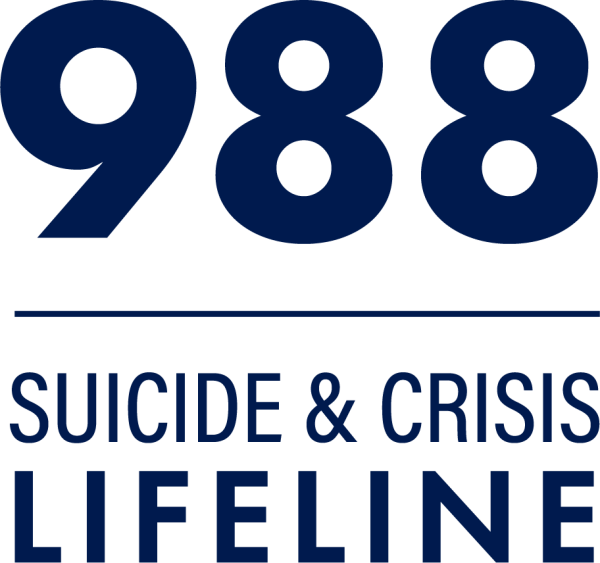 SAMHSA reports too many people are experiencing suicidal crisis or mental health-related distress without the support and care they need, and sadly, the pandemic only made a bad situation worse when it comes to mental health and wellness in America. In 2021 and 2022:
SAMHSA reports too many people are experiencing suicidal crisis or mental health-related distress without the support and care they need, and sadly, the pandemic only made a bad situation worse when it comes to mental health and wellness in America. In 2021 and 2022:
- The U.S. had one death by suicide about every 11 minutes
- For people aged 10–14 and 25–34 years, suicide was the second-leading cause of death
- Suicide rates increased significantly among non-Hispanic Black & American Indian and Alaska Native people
- More than 950,000 youth aged 12-17 and 1.6 million adults attempted suicide
- About 107,000 people died from drug overdoses
Yet, there is hope. The 988 Lifeline helps thousands of people struggling to overcome suicidal crises or mental health-related distress every day.
Visit: 988 Key Messages | SAMHSA
Recover Me
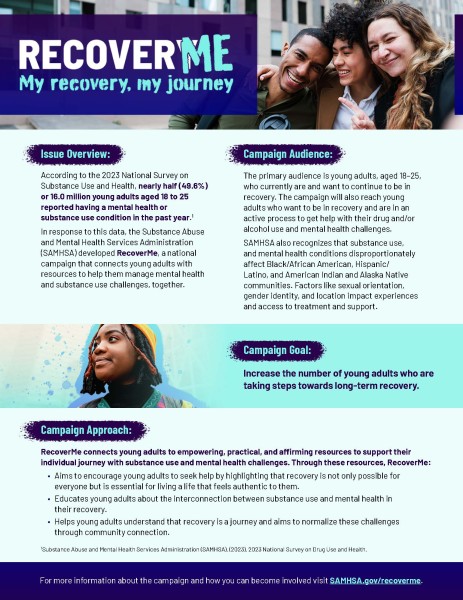 Did you know according to the 2023 National Survey on Substance Use and Health, nearly half (49.6%) or 16.0 million young adults aged 18 to 25 reported having a mental health or substance use condition in the past year. In response to this data, the Substance Abuse and Mental Health Services Administration (SAMHSA) developed RecoverMe, a national campaign that connects young adults with resources to help them manage mental health and substance use challenges, together.
Did you know according to the 2023 National Survey on Substance Use and Health, nearly half (49.6%) or 16.0 million young adults aged 18 to 25 reported having a mental health or substance use condition in the past year. In response to this data, the Substance Abuse and Mental Health Services Administration (SAMHSA) developed RecoverMe, a national campaign that connects young adults with resources to help them manage mental health and substance use challenges, together.
Learn more at: RecoverMe Campaign Partner Toolkit | SAMHSA
Prevent Child Abuse Awareness Resources
Chicago Children’s Advocacy Center is one of the largest children’s advocacy centers in the country and one of only a few at which all partner agencies are co-located. ChicagoCAC hosts free and low-cost education and professional development for social workers, counselors, teachers, youth-serving organizations, and other professionals and community members.
Below you’ll find our upcoming virtual offerings. Please visit our website www.chicagocac.org for more information.
How to Parent After Trauma
4/9/2024, 10 AM – 12 PM
Presented by Alex Horton, Family Support Specialist, ChicagoCAC
When the worst happens, whether an individual or community trauma, parents and caregivers can struggle with how to create a sense of safety for their child. Based on a series of caregiver workshops offered by ChicagoCAC’s clinical staff, this webinar explores the importance of connection, communication, routine and ritual, and attunement when it comes to healing, and what parents and caregivers can do to support their children. CEUs are available for a small fee.
Illinois Sex Crimes and Statutes
4/19/2024, 10 AM – 12 PM
Presented by Annette Milleville, Director of Policy and Strategic Initiatives, ChicagoCAC
How do Illinois laws affect child sexual abuse cases? There are many laws in the State of Illinois which relate to the cases referred to CACs. This session with former Cook County Assistant State’s Attorney, and current ChicagoCAC Director of Policy and Strategic Initiatives, Annette Milleville, will look at current criminal laws including Illinois’ sex assault and sex abuse statutes, the Statute of Limitations for sex crimes and the admissibility of Other Crimes Evidence. This session will explore and explain how these laws and others affect child sex abuse cases, potential charging considerations, and prosecution limitations and opportunities in criminal cases. It is best suited for law enforcement, advocates, and other members of a multi-disciplinary team. CEUs are available for a small fee.
Child Sexual Abuse: Working with & Supporting Boys
4/25/2024, 10 AM– 12 PM
Presented by Researcher and ChicagoCAC Community Advisory Member, Nick Marsh
This workshop explores key concepts in relation to child sexual abuse and working with and supporting boys. This includes exploring definitions of child sexual abuse and the vulnerabilities faced by boys and young men. The workshop will use research and critical reflection to develop an understanding of notions of masculinity and how a young male’s intersecting identities (gender, ethnicity, age, sexuality, disability) can influence the care and support they are provided.
Clinical Issues in Treatment of Child Sexual Abuse
4/30/2024, 1PM – 5 PM CT
Presented by Jan Waters, MS, LCPC, Chief Program Officer, Clinical Services, ChicagoCAC
This training will explore operational and clinical issues critical to the treatment of child sexual abuse that are not commonly covered in trainings on evidence-based practices. Consideration will be given to the needs of children impacted by sexual abuse throughout the treatment process. We will also examine key clinical considerations related to shame, sexual behavior and knowledge, dissociation, caregiver involvement in therapy, and typical symptoms that may occur such as sleep problems, flashbacks, intrusive memories, and transition problems. CEUs are available for a small fee.
Resources
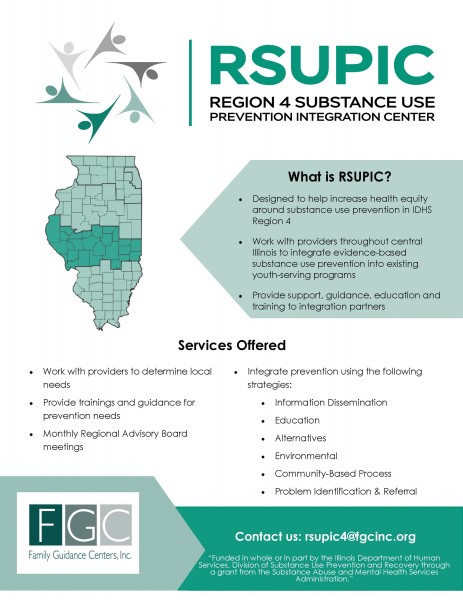
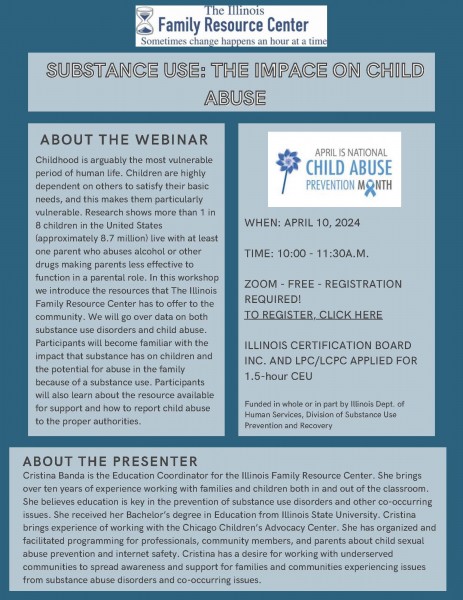 Join us for the discussion regarding substance misuse and the impact on child sexual abuse. To support the Prevent Child Abuse Awareness Month join Cristina Banda, IFRC Education Coordinator, with sharing her experience in this field. To register, please open to the "For Everyone" page and link in the Webinar Schedule. If you have any questions, contact: Zach at: [Please enable JavaScript.].
Join us for the discussion regarding substance misuse and the impact on child sexual abuse. To support the Prevent Child Abuse Awareness Month join Cristina Banda, IFRC Education Coordinator, with sharing her experience in this field. To register, please open to the "For Everyone" page and link in the Webinar Schedule. If you have any questions, contact: Zach at: [Please enable JavaScript.].
Your Words Matter.
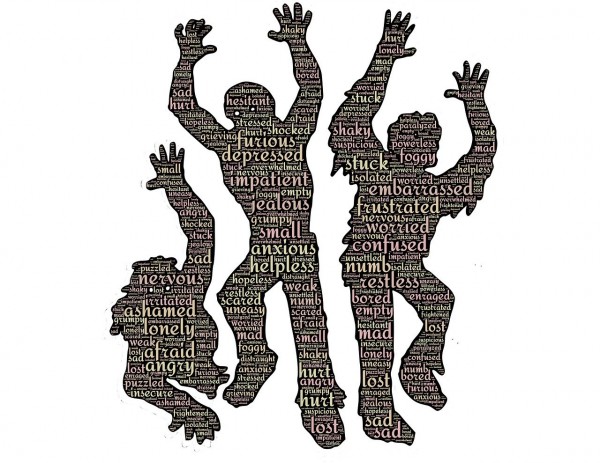 The National Institute on Drug Abuse (NIDA) offers this activity in the efforts to help destigmatize addiction and substance use disorder and reduce negative bias among pregnant women and mothers. The activity has background information and tips for providers on language to use or avoid. This activity is intended for physicians, physician assistants, pharmacists, registered nurses, nurse practitioners/other APRNs, and dentists engaged in the care of patients with substance use disorders. After completing this activity, the participant should be better able to:
The National Institute on Drug Abuse (NIDA) offers this activity in the efforts to help destigmatize addiction and substance use disorder and reduce negative bias among pregnant women and mothers. The activity has background information and tips for providers on language to use or avoid. This activity is intended for physicians, physician assistants, pharmacists, registered nurses, nurse practitioners/other APRNs, and dentists engaged in the care of patients with substance use disorders. After completing this activity, the participant should be better able to:
- Explain the effects of stigmatizing language on patients with addiction.
- Describe the effects of stigma on pregnant women and mothers.
- Compare common terminology and assess which terms should be used or avoided and why.
- Integrate person-first, non-stigmatizing language into everyday practice.
- Identify terms to use and terms to avoid when speaking to patients about addiction.
Sesame Street
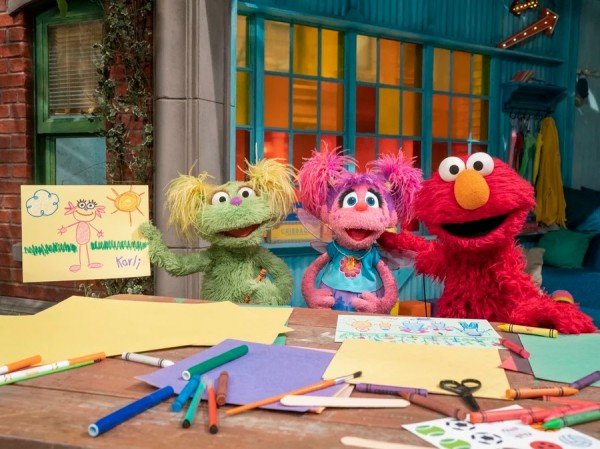 A few years ago, Sesame Workshop, the umbrella organization for the show Sesame Street, began developing some of the first materials specifically created for children aged 1 to 6 whose parents may use drugs or in recovery. Now, a recent grant from the Foundation for Opioid Response Efforts will enable Sesame Workshop to produce more videos, stories and resources focused on addiction, treatment, and healing. Karli is a young Sesame friend who loves pizza and playing monster ball. Right now, her mom is having a tough time dealing with substance abuse. These resources can help the children in your life know that—like Karli—they are not alone. Some of the free materials are available online, and feature famous Muppets like Karli and Elmo, and Chris, one of the shopkeepers on Sesame Street. Visit: How to Talk to Kids about Tough Topics - Sesame Workshop for more information.
A few years ago, Sesame Workshop, the umbrella organization for the show Sesame Street, began developing some of the first materials specifically created for children aged 1 to 6 whose parents may use drugs or in recovery. Now, a recent grant from the Foundation for Opioid Response Efforts will enable Sesame Workshop to produce more videos, stories and resources focused on addiction, treatment, and healing. Karli is a young Sesame friend who loves pizza and playing monster ball. Right now, her mom is having a tough time dealing with substance abuse. These resources can help the children in your life know that—like Karli—they are not alone. Some of the free materials are available online, and feature famous Muppets like Karli and Elmo, and Chris, one of the shopkeepers on Sesame Street. Visit: How to Talk to Kids about Tough Topics - Sesame Workshop for more information.
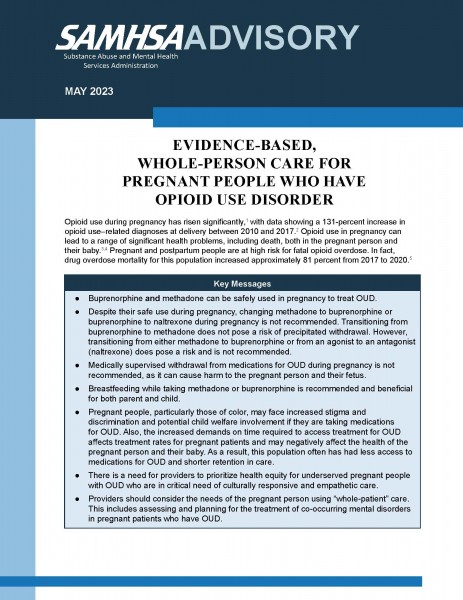 Pregnant people may face significant barriers to receiving treatment for OUD. The opioid epidemic has highlighted the systemic bias and discrimination that pregnant people who have OUD can face in their communities, and even within the healthcare system. Pregnant people who have substance use disorders (SUDs), particularly people of color, have historically had less access to treatment services and can face additional stigma from the healthcare system when they do seek care.For example, some providers may believe that prescribing OUD medications is encouraging patients to “trade one drug for another.” The increased demands on time required to access treatment for OUD, such as long wait times, may also affect treatment rates for pregnant patients, potentially negatively affecting the pregnant person and their baby.
Pregnant people may face significant barriers to receiving treatment for OUD. The opioid epidemic has highlighted the systemic bias and discrimination that pregnant people who have OUD can face in their communities, and even within the healthcare system. Pregnant people who have substance use disorders (SUDs), particularly people of color, have historically had less access to treatment services and can face additional stigma from the healthcare system when they do seek care.For example, some providers may believe that prescribing OUD medications is encouraging patients to “trade one drug for another.” The increased demands on time required to access treatment for OUD, such as long wait times, may also affect treatment rates for pregnant patients, potentially negatively affecting the pregnant person and their baby.
1-877-SAMHSA-7 | ([Please enable JavaScript.]) • [Please enable JavaScript.] (TDD) • WWW.SAMHSA.GOV (May 2023)
May 2023
Resources for Working with Children of Addiction
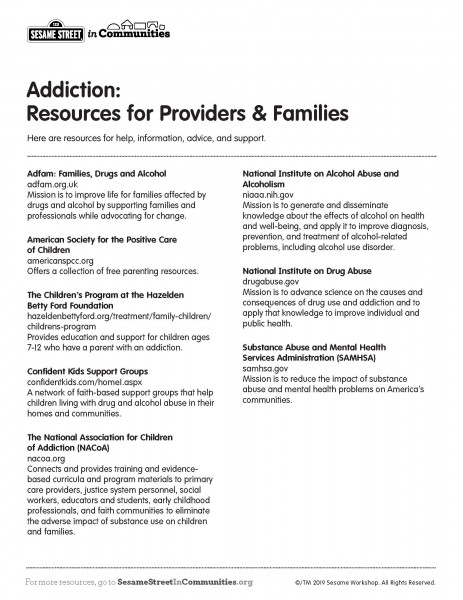 If you work with families with little ones who are impacted by substance misuse, take time to check out the resources offered by Sesame Street in Communities.
If you work with families with little ones who are impacted by substance misuse, take time to check out the resources offered by Sesame Street in Communities.
Parental Addiction | Sesame Street in Communities - Sesame Street in Communities
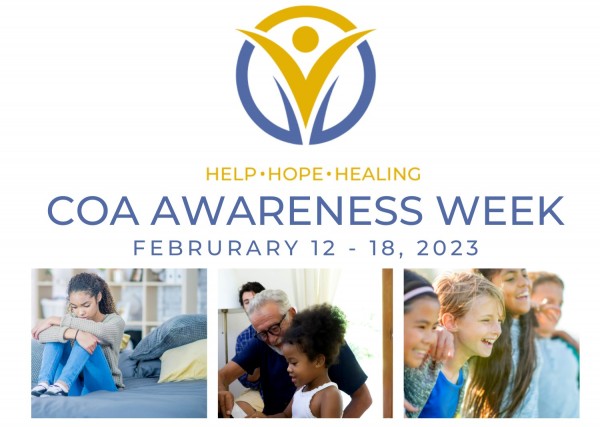 When caring adults are safe and available for children impacted by the disease of addiction, they bring them help, hope, and ultimately healing. COA Awareness Week breaks the silence that engulfs and traps kids and teens living with parental addiction and offers the chance for children at risk to become children of promise. Join us throughout this week to help make a difference that can last a lifetime.
When caring adults are safe and available for children impacted by the disease of addiction, they bring them help, hope, and ultimately healing. COA Awareness Week breaks the silence that engulfs and traps kids and teens living with parental addiction and offers the chance for children at risk to become children of promise. Join us throughout this week to help make a difference that can last a lifetime.
Visit: COA Awareness Week - Nacoa
988 Partner Toolkit
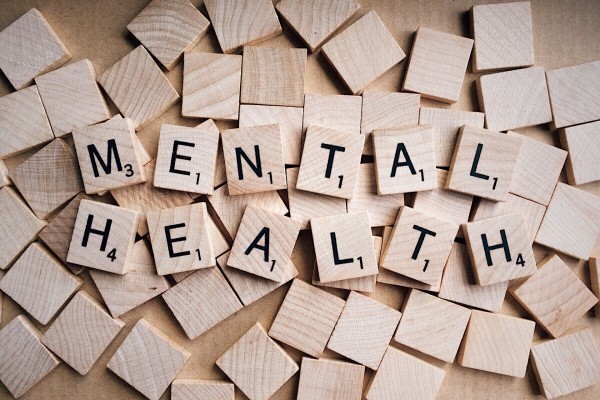 Now is the time to prepare your staff and communities to have a better understanding of the purpose of the new 988 resource number. Have your staff and contacts visit the SAMHSA 988 Partner Toolkit. SAMHSA recognizes the need for governments, states, territories, tribes, crisis centers, and partners to speak with one voice to ensure there is a clear understanding about what 988 is and how it will work. It encourages use of the 988 Partner Toolkit communication outreach materials and building upon them within community coalitions to meet the needs of specific audiences.
Now is the time to prepare your staff and communities to have a better understanding of the purpose of the new 988 resource number. Have your staff and contacts visit the SAMHSA 988 Partner Toolkit. SAMHSA recognizes the need for governments, states, territories, tribes, crisis centers, and partners to speak with one voice to ensure there is a clear understanding about what 988 is and how it will work. It encourages use of the 988 Partner Toolkit communication outreach materials and building upon them within community coalitions to meet the needs of specific audiences.
Check out: 988 Partner Toolkit | SAMHSA
Building Resilience & Finding Hope
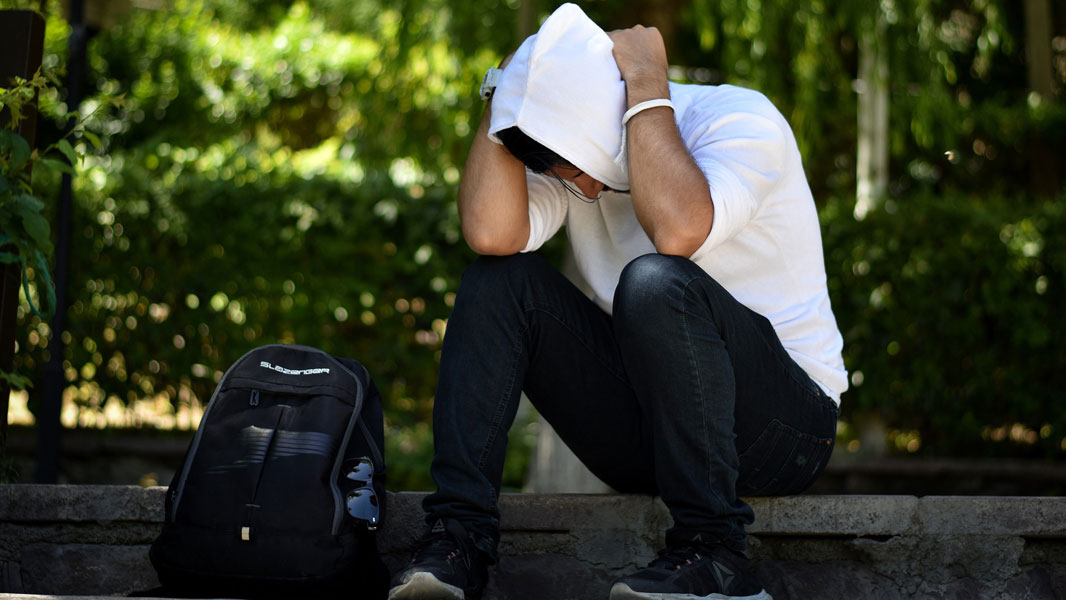 If you work with a population with a risk for suicide, take a look at the following information. According to Hazelden, one of the leading causes of death in the US is suicide and a major concern for everyone in the mental health community. Whether you work with individual clients or provide group therapy, Hazelden Publishing’s new Suicide workbook and DVD are designed to help those who have attempted suicide or experienced ideation.
If you work with a population with a risk for suicide, take a look at the following information. According to Hazelden, one of the leading causes of death in the US is suicide and a major concern for everyone in the mental health community. Whether you work with individual clients or provide group therapy, Hazelden Publishing’s new Suicide workbook and DVD are designed to help those who have attempted suicide or experienced ideation.
The Suicide workbook and DVD focus on:
- Understanding the science behind mental health disorders
- Relating mental health to different areas of life
- Identifying healthy coping strategies
- Challenging unhelpful thinking patterns
- Learning grounding and mindfulness techniques
- Discovering healthy habits to enhance well-being
- Developing assertive communication skills
- Planning for ongoing support
Take a look at the new material: Hazelden Store: Suicide Collection.
Take Care of Yourself
 Burnout is a complex issue resulting from chronic workplace stress that involves exhaustion, depersonalization, and reduced personal accomplishment. The Substance Abuse and Mental Health Administration (SAMHSA) offers a new guide to prevent and reduce burnout among behavioral health workers. If you or someone you care about works in the field visit: Help keep our health care workers strong and healthy.
Burnout is a complex issue resulting from chronic workplace stress that involves exhaustion, depersonalization, and reduced personal accomplishment. The Substance Abuse and Mental Health Administration (SAMHSA) offers a new guide to prevent and reduce burnout among behavioral health workers. If you or someone you care about works in the field visit: Help keep our health care workers strong and healthy.
Check out: https://www.store.samhsa.gov/.../SAMH.../pep22-06-02-005.pdf
Family-Based Intervention Lowers Long-Term Suicide Risk in Youth
 The National Institute of Mental Health shared findings of a study related to the suicide rate of adolescents and the impact of a family-based intervention called Family Check-Up. Over the last 20 years, suicide rates have increased in the U.S. by 24%, with the largest increases occurring in females ages 10-14 and African American children aged 5-11. These statistics highlight the critical need for better ways to understand and prevent suicide in youth and adolescents. In a recent study supported by the National Institute of Mental Health, researchers examined the impact of a family-based intervention on suicide risk in youth and found risk-reduction benefits up to 10 years later.
The National Institute of Mental Health shared findings of a study related to the suicide rate of adolescents and the impact of a family-based intervention called Family Check-Up. Over the last 20 years, suicide rates have increased in the U.S. by 24%, with the largest increases occurring in females ages 10-14 and African American children aged 5-11. These statistics highlight the critical need for better ways to understand and prevent suicide in youth and adolescents. In a recent study supported by the National Institute of Mental Health, researchers examined the impact of a family-based intervention on suicide risk in youth and found risk-reduction benefits up to 10 years later.
Genetic, neurobiological, cognitive, and social factors contribute to the risk of self-injurious thoughts or behaviors. Research also suggests that family-level factors play an important role in the development of self-injurious thoughts and behaviors during adolescence. Evidence shows that interventions focused on improving family processes, such as improving conflict resolution and encouraging supportive parenting strategies, can reduce long-term suicide risk in youth—even if the intervention does not specifically target suicidal thoughts or behaviors.
To find out more about the study outcomes of the researchers, visit: NIMH » Family-Based Intervention Lowers Long-Term Suicide Risk in Youth (nih.gov).
SAMHSA Addresses Burnout
 Burnout is a complex issue resulting from chronic workplace stress that encompasses exhaustion, depersonalization, and reduced personal accomplishment. The Substance Abuse and Mental Health Administration (SAMHSA) offers a new guide that highlights organization-level interventions to prevent and reduce burnout among behavioral health workers. Help keep our health care workers strong and healthy.
Burnout is a complex issue resulting from chronic workplace stress that encompasses exhaustion, depersonalization, and reduced personal accomplishment. The Substance Abuse and Mental Health Administration (SAMHSA) offers a new guide that highlights organization-level interventions to prevent and reduce burnout among behavioral health workers. Help keep our health care workers strong and healthy.
Publication ID: PEP22-06-02-005; Publication Date: September 2022
Publication title: Addressing Burnout in the Behavioral Health Workforce through Organizational Strategies
https://www.store.samhsa.gov/sites/default/files/SAMHSA_Digital_Download/pep22-06-02-005.pdf
WHAT’S LEGAL AND WHAT’S NOT?
 Are you still wondering what the rules are related to cannabis use in Illinois? As you work in your organization and community these issues may arise. Be informed. Learn the facts related to responsible choices and information regarding cannabis use.
Are you still wondering what the rules are related to cannabis use in Illinois? As you work in your organization and community these issues may arise. Be informed. Learn the facts related to responsible choices and information regarding cannabis use.
Visit: Let’s Talk Cannabis Illinois | What’s Legal and What’s Not (prevention.org).
